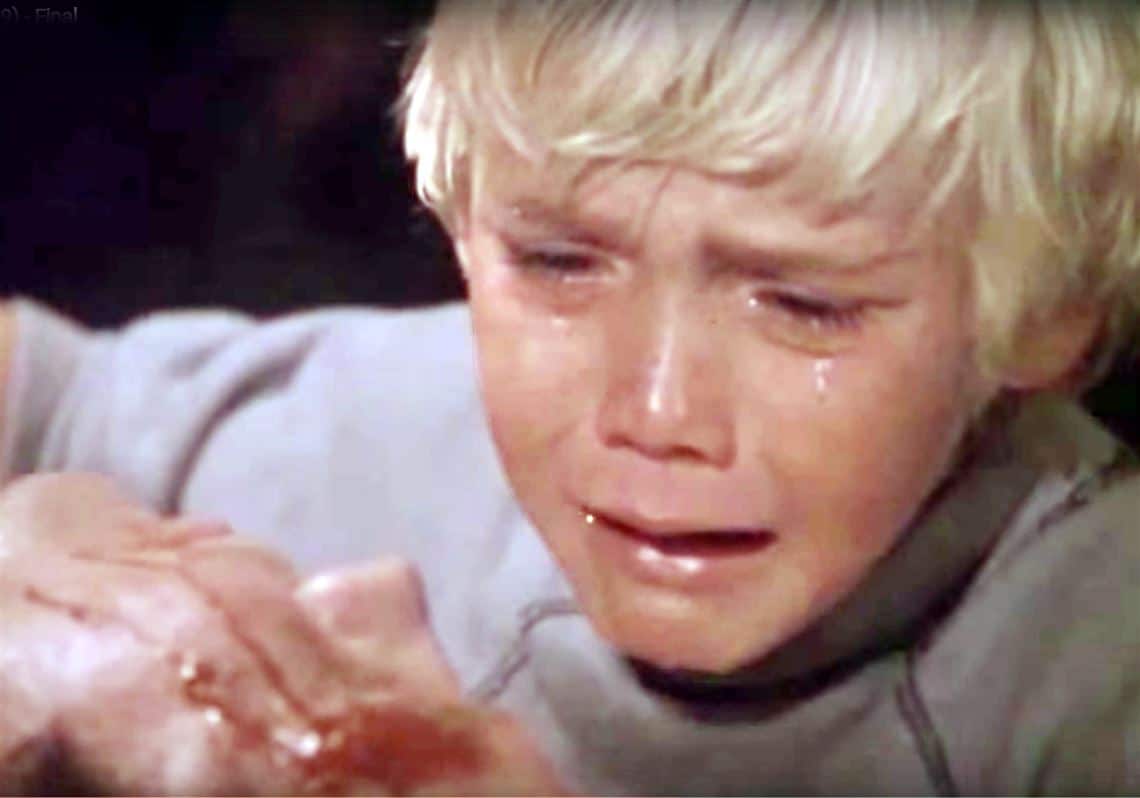By Bija Bennett
We’re in the midst of a nerve-wracking pandemic, but tearjerkers are hot. In the past few weeks, I’ve gotten “best sad movie lists” from Esquire, GQ, POPSUGAR, Thrillist, Vogue, Elle, Harper’s Bazaar, and more. I find it fascinating that people love to watch movies to feel something they don’t allow themselves to feel in their everyday lives. Or perhaps right now they want evidence that things could always be worse.
But do we really need sad movies, especially right now? There’s already so much grief, sorrow and unhappiness in our lives — not to mention negativity and anger in human interactions. The latter helps explain the popularity of the enduring adage “laughter is the best medicine.”
Weighty research on mind-body medicine proves this maxim is true. “Stress relief from laughter is no joke,” says Mayo Clinic. But the reverse is true too. It turns out embracing negative emotions — from sadness to anxiety to distress — is also good medicine, say leading researchers such as Brené Brown and David Barlow.
Negative Emotions Help Us Grow
Clearly, emotions — especially negative ones — have been given a bad rap. Feeling good — or bad — is good for us. While it’s easy to say, “Let’s skip the bad stuff,” in truth, negative emotions and emotional stress help us grow.
How? When we face difficult issues in life, and painful emotions that feel threatening, we must come up with solutions. How we cope when things go wrong is developmentally important. Brown praises vulnerability, struggle and adversity, and notes that these emotions help us learn to live wholeheartedly and develop hope.
The range of positive and negative emotions also help us develop flexibility and resilience. That’s because thinking isn’t divorced from feeling. There is a profound connection between our emotions and our reasoning, judgement, logic, and decisions. Both permeate our brains and inform the scope and depth of our experiences.
Emotions Are the Heart of Our Experiences
Eastern spiritual traditions favor a contemplative, detached, dispassionate ideal often confused as enlightenment or nirvana. Great value is placed on the ability to withdraw oneself from all but minimal involvement with the world. Even the stereotypical view — the serene yogi sitting in exalted meditation — warns us against the distracting power of emotions.
But emotions are not mere disruptions of otherwise calm and reasonable experiences. They are at the very heart of our experiences — determining our focus, influencing our interests, giving meaning to our world.
Emotions stir us. They are our inner barometers, our biologically adapted orientation system. They are, in fact, an internal communication network that connects the incidents, the relationships and the experiences that make up our lives.
Our Emotions and Health Are Connected
Our emotions and our health are intimately connected. Moods and attitudes directly influence the state of our health. Positive emotions clearly boost our well-being. Negative emotions that are unresolved and distressing linger; they are toxic and can be a deterrent to our health. But when emotions are acknowledged, understood and expressed, they are as valuable as any healing intervention available.
By getting in touch with our emotions, both by listening to them and directing them through our body-mind, we gain access to the healing wisdom that is our natural and biological right. Those who learn to tolerate emotional stress and embrace its symptoms (e.g. “My heart is racing because my body is energized to meet this challenge”) can build resilience and avert negative side effects, notes research in Scientific American.

We Can Heal What We Can Feel
Once we make a conscious decision to interact with both our positive and negative emotions, we can heal what we can feel. And this is good medicine.
In truth, we can lead a full, authentic and actualized life only when we feel deeply. It happens when we allow ourselves to nurture our feelings of pain and fear as well as our feelings of pleasure and joy. As we engage in this play of feelings, we move through a range of emotional experiences. Our controlling, logical structures fall away, and a wondrous spontaneity arises from within, bringing real transformation and change.
Feeling is an art, a rare art. But to maintain our emotional health, it must be practiced. Here is an effective practice to try that will help you “allow” yourself to feel.
Step 1: Begin by giving yourself your full attention; doing so is the basis of healing something inside yourself. As you give yourself your full attention, become aware of what you feel, as though you are shining a light on yourself. Continue by asking yourself this: What am I feeling? or, What am I thinking? or, What did I just do?
Step 2: Use your awareness to identify what you feel. Tell yourself this: I am happy because … I am uncomfortable because … I feel some sadness because …
Step 3: Identify what you are experiencing in the present moment. This time, make no references to the reasons for your feelings. Let go of the “why.” Simply say to yourself: I feel pain; or I feel anxious; or I feel frustrated; or I feel pleasure.
Step 4: Now, allow it. Accept what you are feeling as you experience it right now. Do not resist it. Allow it to continue as long as it needs to. If your feelings begin to change, let them change.
Step 5: Breathe with it. Consciously begin to breathe, and at the same time keep feeling what you are feeling. Gently deepen your breath for a minute or so. Just stay with your breath.
Step 6: After a while, feel the emotion come to a place of balance on its own. What you feel now may be slightly different from when you started. Perhaps you feel a little peace, some contentment, or connection with yourself. Continue to stay with what you are feeling now.
Step 7: Settle it. Simply place your attention on your heart and feel this moment as it is. It’s something that you know, like coming back home. Have a feeling awareness within your entire body. Just effortlessly keep your attention in your body.
Bija Bennett is an acclaimed author, speaker, and wellness-industry pioneer whose practice focuses on the tenets of mind-body health, a discipline she teaches through accessible and engaging strategies. She has developed pioneering programs and workshops for Fortune 500 companies and major medical institutions, authored four seminal books, including “Emotional Yoga: How the Body Can Heal the Mind” and myriad articles on health, healing and personal growth, and is currently the chair of the Global Wellness Institute’s Yoga Therapy Initiative. She counts Deepak Chopra among her colleagues and has taught numerous celebrities, including Joni Mitchell, Calvin Klein, Barbra Streisand, George Harrison and Laura Dern. Through her website, www.bijab.com, Bija provides a range of wellness services tailored to individuals, businesses and audiences.


